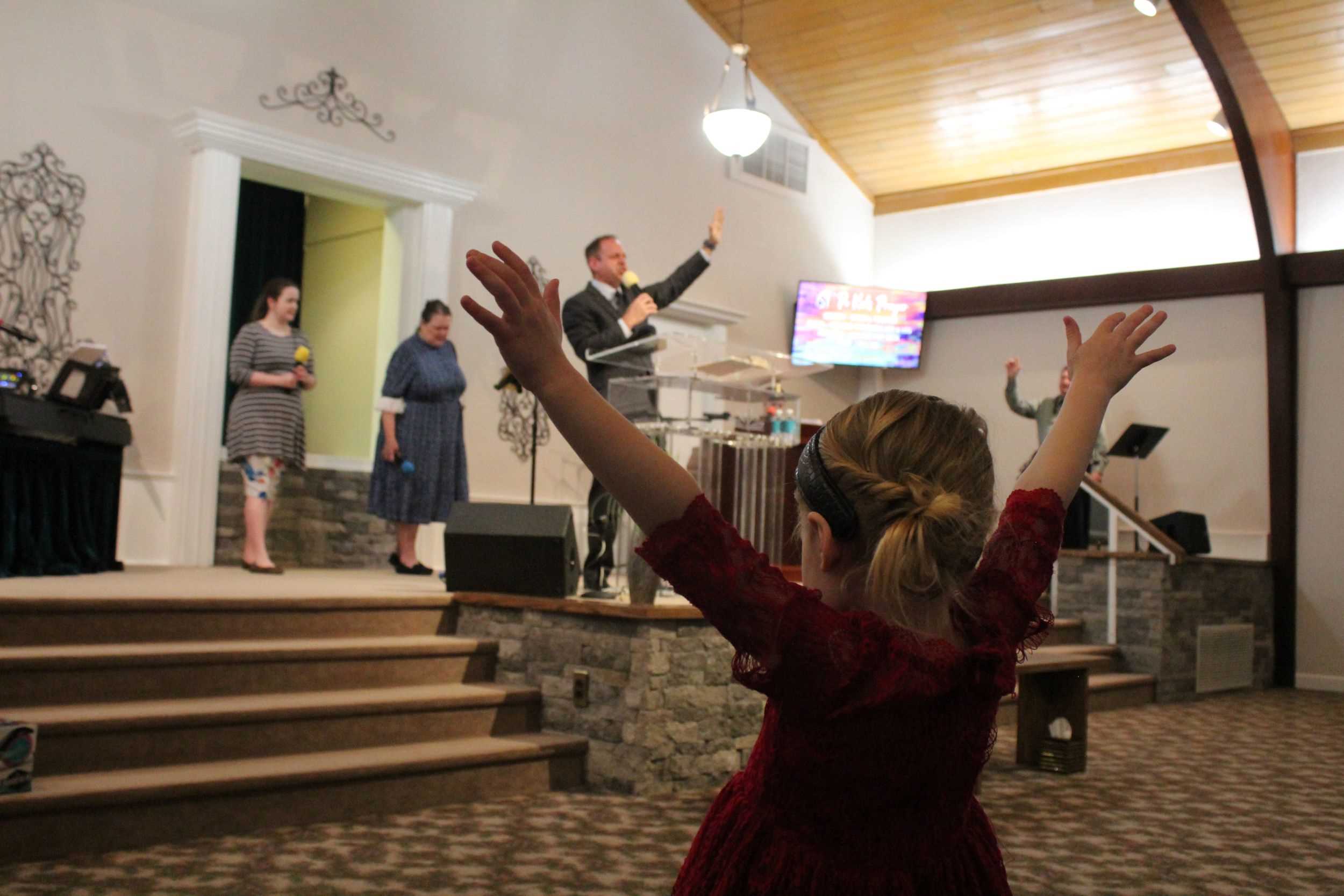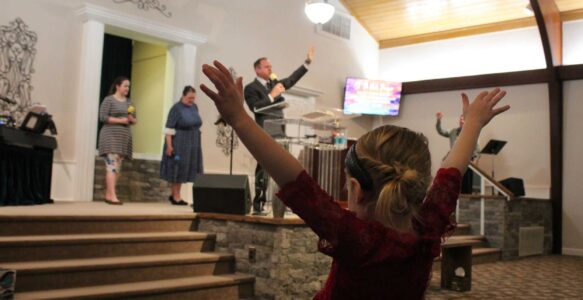Doctrine should be
Known
Experienced
Stabilizing
Doctrine is not just head knowledge. It’s not just intellectual. Paul said, herein ye stand and are saved (1 Cor. 15:1-2). The first-century church exemplified in practice the doctrines taught. We’ll summarize it to say they were Pentecostal in Experience, Apostolic in Doctrine, Evangelistic in Mission, and Holy in Lifestyle.
WORD OF GOD
WHO IS GOD
THE NAME
THE NEW BIRTH
SEPARATION
WORD OF GOD
The Bible to be inspired of God, the infallible Word of God. “All scripture is given by inspiration of God, and is profitable for doctrine, for reproof, for correction, for instruction in righteousness” (II Timothy 3:16).
The Bible is the only God-given authority which man possesses; therefore, all doctrine, faith, hope, and all instruction for the church must be based upon, and harmonize with, the Bible.
WHO IS GOD
We believe in the one ever-living, eternal God: infinite in power, holy in nature, attributes and purpose; and possessing absolute, indivisible deity. This one true God has revealed Himself as Father; through His Son, in redemption; and as the Holy Spirit, by emanation (I Corinthians 8:6; Ephesians 4:6; II Corinthians 5:19; Joel 2:28).
The Scripture does more than attempt to prove the existence of God; it asserts, assumes and declares that the knowledge of God is universal (Romans 1:19, 21, 28, 32; 2:15). God is invisible, incorporeal, without parts, without body, and therefore free from all limitations: He is Spirit (John 4:24), and “a spirit hath not flesh and bones” (Luke 24:39).
THE NAME
God used different titles, such as “God Elohim,” “God Almighty,” “El Shaddai,” “Jehovah,” and especially “Jehovah Lord,” the redemptive name in the Old Testament.
“Unto us a child is born, unto us a son is given: . . . and his name shall be called Wonderful, Counsellor, The mighty God, The everlasting Father, The Prince of Peace” (Isaiah 9:6). This prophecy of Isaiah was fulfilled when the Son of God was named. “And she shall bring forth a son, and thou shalt call His name JESUS: for he shall save his people from their sins” (Matthew 1:21).
“Neither is there salvation in any other: for there is none other name under heaven given among men, whereby we must be saved” (Acts 4 :12).
THE NEW BIRTH
Pardon and forgiveness of sins is obtained by genuine repentance, a confessing and forsaking of sins. We are justified by faith in the Lord Jesus Christ (Romans 5:1). John the Baptist preached repentance, Jesus proclaimed it, and the apostles emphasized it to both Jews and Gentiles (Acts 2:38, 11:18, 17:30).
The scriptural mode of baptism is immersion and is only for those who have fully repented, having turned from their sins and a love of the world. It should be administered by a duly authorized minister of the gospel, in obedience to the Word of God, and in the name of our Lord Jesus Christ, according to the Acts of the Apostles 2:38, 8:16, 10:48, 19:5; thus obeying and fulfilling Matthew 28:19.
John the Baptist, in Matthew 3:11, said, “He shall baptize you with the Holy Ghost, and with fire.”
Jesus, in Acts 1:5, said, “Ye shall be baptized with the Holy Ghost not many days hence.”
Luke tells us in Acts 2:4, “They were all filled with the Holy Ghost, and began to speak with other tongues [languages], as the Spirit gave them utterance.”
The terms “baptize with the Holy Ghost and fire,” “filled with the Holy Spirit,” and the “gift of the Holy Ghost” are synonymous terms used interchangeably in the Bible.
It is scriptural to expect all who receive the gift, filling, or baptism of the Holy Spirit to receive the same physical, initial sign of speaking with other tongues.
SEPARATION
Godly living should characterize the life of every child of the Lord, and we should live according to the pattern and example given in the Word of God. “For the grace of God that bringeth salvation hath appeared to all men, teaching us that, denying ungodliness and worldly lusts, we should live soberly, righteously, and godly, in this present world” (Titus 2:11-12).


